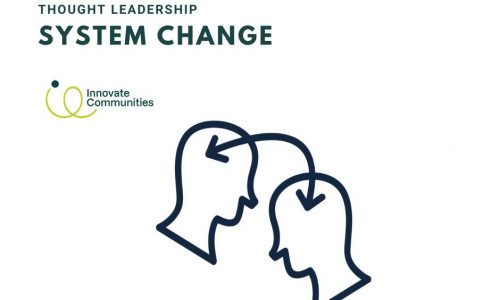Our administrative architecture nationally and regionally to facilitate and enable community-driven system change is outdated. Unless it is significantly revised, we are going to be in a perpetual cycle of funding great ideas, projects, services, and business only ever tackling the symptoms of contemporary and entrenched problems and will never actually tackle the systemic aspects of such, the root cause. This is not just limited to community focused projects, but academic, and business too. Business-as-usual in this space will directly impact on the economic, social, and environmental sustainability of our country, society and, most importantly our citizens.
In Ireland, when we have an issue or face a complex civic challenge we want to combat there are a few options we can take whether we are a social innovator, social entrepreneur, entrepreneur, intrapreneurs or extrapreneurs: visit our local development company, local enterprise office, or apply for a call for funding under a community challenge programme e.g., via a smart city programme or a government funded agency. In my career I have engaged with all of these. Many of these calls ask you to focus on what your problem is and how will you solve it; detailing strategy, operations, marketing and UX, impact, financing and return on investment.
I am not aware of a support structure in this space that brings in the principles of system thinking and change as an outcome of a community or entrepreneurial intervention, and when interventions are provided they are often short term in their offer of support.
Well, it hasn’t really been a problem until more recently. Our ways of thinking, working and living that have shaped modern life and modern business have brought benefits to many but they’ve also created a climate emergency, devastated natural systems, and entrenched vast inequalities between people that increasingly divide and limit us. I am not saying anything we don’t know. These are our contemporary and entrenched challenges. As they are contemporary, we have not had much practice in coming up with impactful methodologies to deal with such challenges.
Many of these challenges are referred to as systemic challenges, challenges that are deeply rooted in our society, challenges that are deeply stuck. So even though citizens, business, academics come up with great ideas and solutions to these challenges, and agencies fund them, on many occasions they are not looking at the solutions as a system solution which is resulting in the problems occurring again and again. ‘We’ are then funding them again and again. The way we currently deliver interventions in Ireland, in most situations (definitely not in all, and I emphasise this greatly) we are putting a plaster on the challenge, mainly tackling the symptoms and not actually getting to the root cause.
In this series I am going to share thoughts and ideas on:
1. Shifting focus to reduce the critical civic challenges faced by society today.
2. Moving towards an approach to change our business-as-usual mindset.
Your thoughts and comments are most welcome.



Find Us
© 2025 Brand and Website by Out of Place Studio